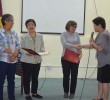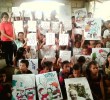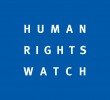KYOTO, JAPAN – With Asia set to undergo dynamic changes within a generation, ADB must evolve with the region, a seminar audience heard today at ADB’s 40th Annual Meeting in Kyoto.
The Governors’ Seminar on �Facing Asia’s Future� discussed the recent report of an Eminent Persons Group (EPG) convened by ADB President Haruhiko Kuroda to advise on future trends and challenges facing the region and ADB’s long-term role in addressing them.
In 2007, ADB has initiated a comprehensive midterm review of its long-term strategic framework, in order for the institution to remain relevant and effective as a regional development bank. The Governors� Seminar marks the opening of the consultative process.
Presenting the report’s recommendations to the seminar audience, EPG chair Supachai Panitchpakdi, Secretary General of the UN Conference on Trade and Development, stated that Asia is a region of �achievements and paradoxes,� posting outstanding economic performance yet still home to two thirds of the world�s absolute poor.
He said that in this context, the main policy challenges facing countries will change: from fighting extensive poverty to tackling issues arising from their economic successes including widening inequality and damage to the environment. In the transition to 2020, ADB would need to pursue its current poverty reduction agenda in the lower income countries, while simultaneously developing capacities to play its new role in an increasingly more sophisticated, complex, and integrated region.
Among those giving their views on the EPG report were ADB’s governors for Afghanistan, Anwar ul-Haq-Ahadi; Japan, Koji Omi; Indonesia, Sri Mulyani Indrawati; and Norway, Anne Margareth Fagertun Stenhammer.
Mr. Omi, Japan�s Minister of Finance, agreed that widening disparities in Asia need to be urgently addressed, with the region facing challenges on energy and environment and the need for greater regional economic integration. He saw technological development and innovation as a new, additional priority as well as an area of assistance that Japan would be giving further considerations to.
However, Mr. Ahadi, Afghanistan�s Minister of Finance, stressed that support to ADB�s poorest member countries should not be diminished; engagement must be continued or enhanced. �It is these countries – the fragile states – where ADB has the greatest impact,� he said.
Ms. Indrawati, Indonesia�s Minister of Finance, questioned ADB�s comparative advantage if it turns more to serving middle income countries, given that this could be a crowded field given the competition posed by other international financial institutions.
Ms. Stenhammer, the Norwegian Secretary of State for International Development, called the EPG report �thought provoking and valuable,� making the point that for developing economies to realize inclusive growth, attention to social issues, such as health and education, as well as agriculture, will be important.
In the subsequent open discussions, the EPG members participating as panelists in the seminar comprising Isher Judge Ahluwalia, Nobuyuki Idei, Caio Koch-Weser, and Justin Yifu Lin, together with the EPG Chair, responded to the comments and questions from the governors.
ADB President Kuroda expressed his appreciation for the EPG�s bold vision in its report and for the governors� insightful views.
He said that while the report envisions a dramatically transformed Asia by 2020, the region will still face considerable development challenges.
�The report identifies critical issues which ADB must be prepared to help tackle, and institutional changes that ADB must undergo, to become more flexible and responsive to the needs of developing Asia,� he said.
�In seeing first hand the changes taking place and also studying this report, I am ever more certain that ADB must evolve with the region. But to do so, we need a sound basis for our planning and a consensus on the way forward.�
****** INBOX is an archive of press releases, statements, announcements, letters to the editors, and manifestos sent to Davao Today for publication. Please email your materials to davaotoday@gmail.com. Davao Today reserves the right to edit or refuse material for publication. *****










